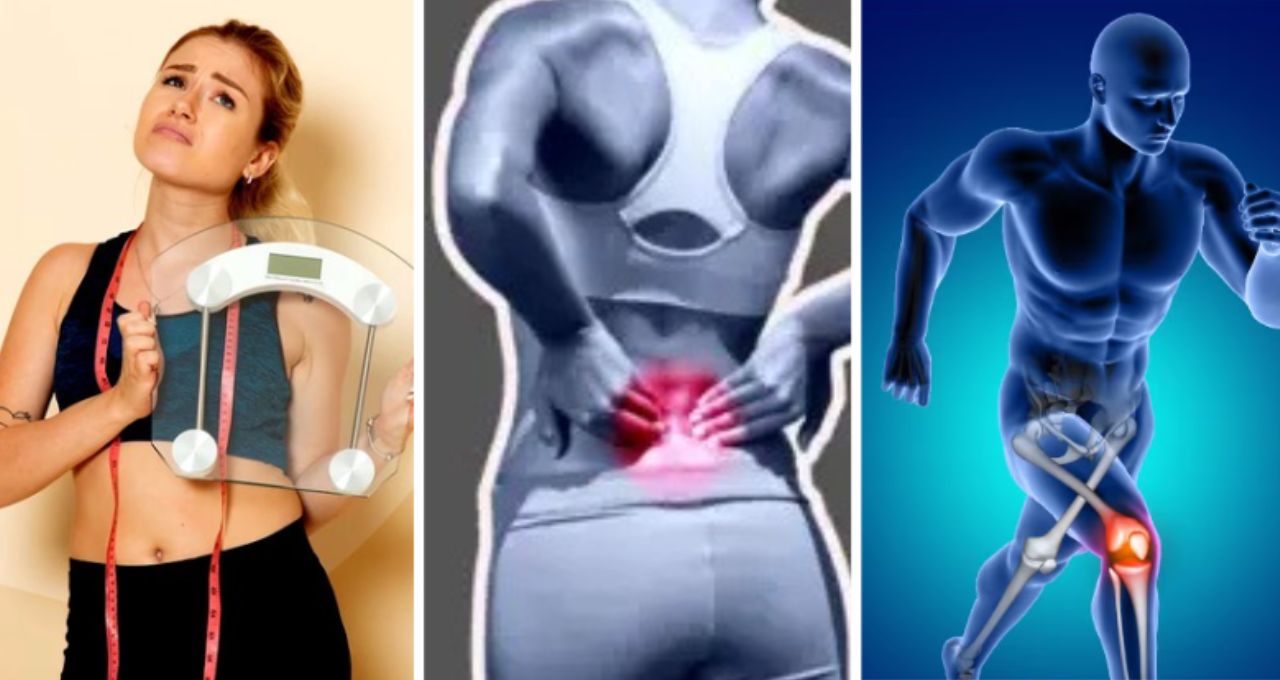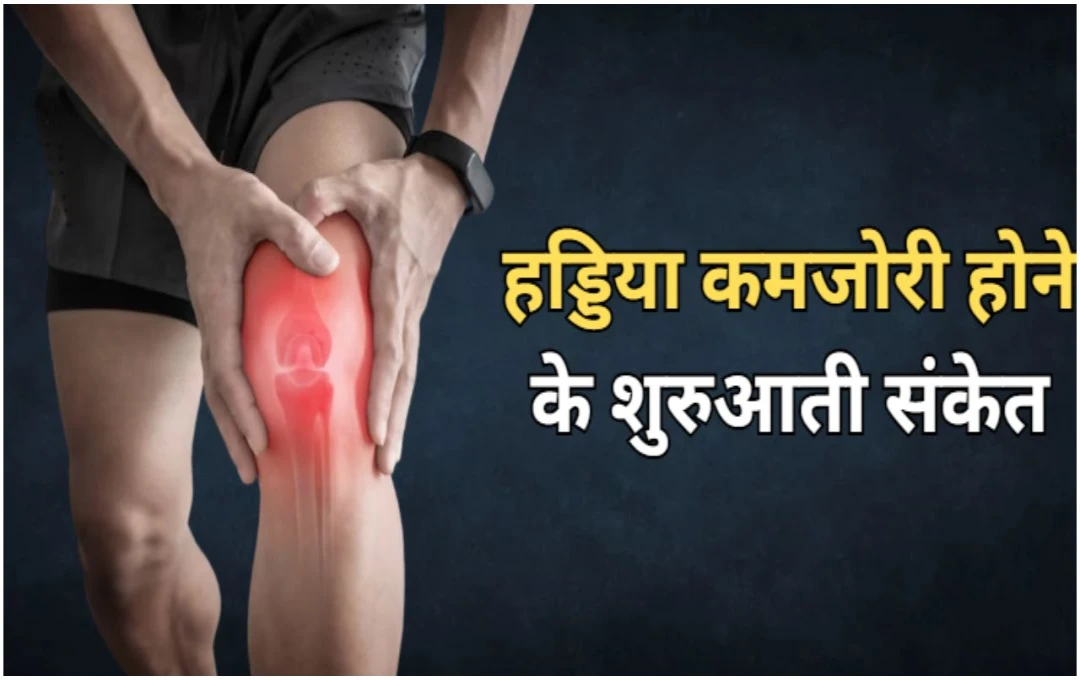Weak bones are no longer just a problem for the elderly. Poor diet, lack of exercise, and lifestyle choices are causing even young and middle-aged people to be affected. Early signs include unexplained weight loss, joint pain and swelling, and difficulty walking.
Weak Bones: Nowadays, weak bones are becoming a common problem even among young and middle-aged people. Previously, this issue was mostly seen in the elderly, but due to changing lifestyles, poor diet, and lack of exercise, bones are now weakening even at a younger age. Weak bones not only affect daily life, but if not addressed in time, they can lead to serious problems such as osteoporosis, arthritis, and fractures.
Early Signs of Weak Bones

Weak bones often develop slowly, and early symptoms are not easily noticeable. If you are experiencing the following signs, do not ignore them:
- Unexplained Weight Loss
If you are losing weight suddenly without any dieting or exercise, it could be a sign of weak bones. Reduced bone density affects body mass and leads to weight loss. - Persistent Bone Pain
If you experience persistent pain in your back, waist, or joints without any injury, it could be a sign of calcium deficiency or weak bones. Reduced bone density affects the support system of the body, leading to pain. - Joint Swelling and Stiffness
Joint swelling and stiffness can be a symptom of weak bones or arthritis. Especially if pain and swelling persist in the joints of the knees, elbows, and fingers, consult a doctor immediately. - Difficulty Walking
Weak bones can disrupt the body's balance. You may experience difficulty climbing stairs, walking long distances, or changing direction suddenly. Frequent fear of falling and getting tired quickly are also signs of weak bones.
Five Effective Ways to Strengthen Bones

By recognizing weak bones in time and adopting the right measures, you can improve bone health. The following five measures are particularly beneficial:
- Eat a Diet Rich in Calcium and Vitamin D
Calcium is essential for bone strength. Milk, yogurt, cheese, green leafy vegetables, almonds, and soybeans are excellent sources of calcium. Vitamin D helps in the absorption of calcium, so spending some time in the sun daily and including vitamin D-rich foods like eggs and fish in your diet is important. - Exercise Regularly
Weight-bearing exercises, walking, yoga, dance, and weight training strengthen bones. Exercising for 30 minutes daily helps increase bone density and maintain joint strength. - Stay Away from Cigarettes and Alcohol
Smoking and alcohol are harmful to bones. They interfere with calcium absorption and weaken bones. Therefore, avoiding them is essential for bone health. - Consume Adequate Protein
Protein plays an important role in bone formation and repair. Pulses, eggs, fish, chicken, and dairy products are good sources of protein. A balanced protein intake increases bone strength. - Get Regular Health Checkups
Do not ignore any bone-related problems. Get bone density tests done from time to time. Calcium and vitamin D supplements can also be taken as per doctor's advice.
Weak bones are a serious problem, but it can be prevented by recognizing the early signs. A balanced diet, regular exercise, protein and vitamin D-rich foods, avoiding alcohol and smoking, and regular health checkups can maintain bone strength. Start taking care of your bones today to avoid problems like pain, falls, and fractures in the future.















